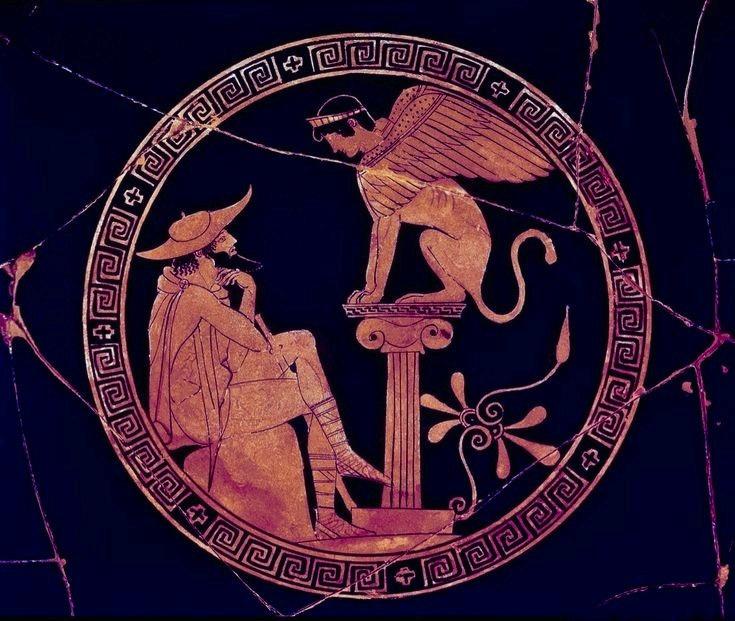
3 minute read
Oedipus: A cautionary tale about the problem with abandoning your child in the mountains.
Oedipus: Oidan meaning to swell and pous (from podos) meaning feet!
In honour of mothers day, we decided to share with you one of the most famously disturbing mother/son relationships.
Advertisement
Born to the King Laius and Queen Jocasta of Thebes, an oracle predicted that Oedipus would end up killing his father and marrying his mother. Fearing this prophecy, King Laius ordered his servants to pierce the baby’s ankles, rendering him unable to crawl, and instructed one of his shepherds to abandon him in the mountains and leave him to die. Unfortunately for King Laius (and quite fortunately for us), the story did not end there. Having taken pity on the baby, the shepherd decided to give him to another shepherd who took him to Corinth where he was later adopted by that same king and his wife (the first of many ironies to come).
When Oedipus grew up, he got into a fight with a drunkard who told him that he was adopted (lame, I know). Hoping to learn the truth, Oedipus visited the oracle of Delphi, who told him about the prophecy. Wanting to protect his (adoptive?) parents, Oedipus left Corinth and headed north wanting to get as far away from his parents as possible (most of you can probably guess where he’s heading now *wink wink*).
On his way up north, Oedipus encountered a man with whom he quarrelled and later killed before heading up to Thebes. Upon his arrival, he encountered Sphinx, a monster who plagued the city and terrorised passersby by requiring them to answer a riddle. The Sphinx asked Oedipus the same question she has asked everyone (yes, it is a she) and when he answered it correctly, she killed herself as she was unable to bear the fact that her riddle had been answered correctly! (It is a bit dramatic, especially since the riddle is so dumb that it is not even worthy of being in this magazine!).
As a reward, Oedipus received the throne of Thebes and the hand of the widowed Queen (yep). With neither of them knowing who the other is, they had four children together. Years later, Thebes is hit with a plague (no rest for the wicked, I guess.) and a visit to the oracle of Delphi reveals that it is due to the murderer of King Laius not facing any consequences. Oedipus being the traditional Greek hero, with all bravado and a little bit of stupidity, takes an oath to find the killer. His investigations revealed that years prior, King Laius was headed south to confront the oracle of Delphi and on his way, he met a younger man who killed him in a fight. Having realised that she married her son, Queen Jocasta hung herself. After finding her, Oedipus took out a pin from her dress and blinded himself (I know, I know, the beauty of a greek tragedy *dreamy sigh*).
Guided by his daughter Antigone, Oedipus left Thebes to never return.
Now, let’s leave behind ancient Greece and transport ourselves to 1899, Sigmund Freud, instead of focusing on the role of fate in the story, decided to introduce a new concept to psychoanalytic theory called “Oedipus complex”. According to Freud, it is when a child (aged 3 to 5 years old) begins to develop a desire for sexual involvement with the parent of the opposite sex and a rivalry towards the parent of the same sex (certainly not what Sophocles intended but, as everyone who studied behavioural science knows, the devil works hard but Freud worked harder).



